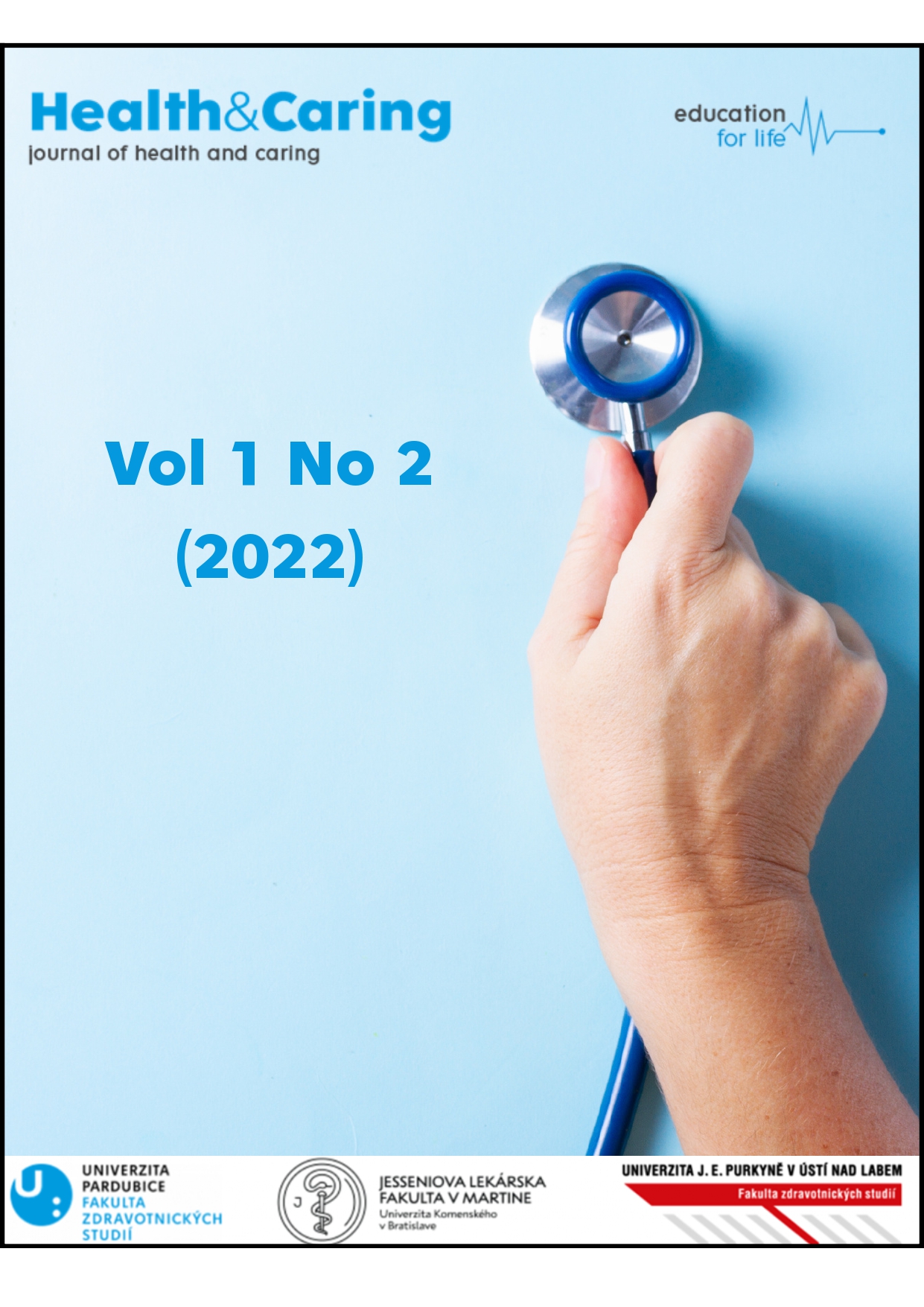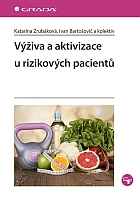SUBJECTIVE WELL-BEING OF CAREGIVERS AND QUALITY OF LIFE OF PATIENTS AFTER STROKE
DOI:
https://doi.org/10.46585/hc.2022.2.2089Abstract
Stroke (stroke) is often a cause of long-term disability. It represents a major economic as well as social problem for both the patient and his/her family. It brings change to the lives of families who have to adapt many aspects of their lives to an ill member. The aim was to analyse the relationship between the personal well-being of caregivers caring for patients who have had a stroke and the quality of life of patients after having had a stroke. The Index of Personal Well-being (PWI) was emitted to the caregivers and the Stroke Survivors Quality of Life (SS-QOL) scale was administered to the patients. The results were analysed by Pearson's correlation coefficient. In a sample of 64 caregivers and 64 patients, a positive statistically significant (p ≤ 0.05) relationship was found between satisfaction with life as a whole and family status (r = 0.383) speech (r = 0.257), mood (r = 0.310), social activities (r = 0.298), and work (r = 0.248) on the SS-QOL scale. There were also negative statistically significant relationships between satisfaction with life as a whole and mobility (r = -0.258) and vision (r = -0.247) on the SS-QOL scale. Positive statistically significant relationships were also found between caregivers' personal well-being (total PWI score) and family status (r = 0.269), speech (r = 0.296), mood (r = 0.385), social activities (r = 0.290), and work (r = 0.281) of the patient. The results suggest the need for further research in this area as well as the requirement for multidisciplinary interventions in the care of this community of patients and their caregivers.
Downloads
References
Almašiová, A., & Kohútová, K. (2016). Štatistické spracovanie dát sociálneho výskumu v programe SPSS. Verbum.
Alotaibi, S. M., Alotaibi, H. M., Alolyani, A. M., Abu Dali, F. A., Alshammari, A. K., Alhwiesh, A. A., Gari, D. M., Khuda, I., & Vallabadoss, C. A. (2021). Assessment of the stroke-specific quality-of-life scale in KFHU, Khobar: A prospective cross-sectional study. Neurosciences (Riyadh, Saudi Arabia), 26(2), 171–178. https://doi.org/10.17712/nsj.2021.2.20200126
Ansari B., & Qureshi, S. S. (2013). Stress and coping in caregivers of cancer patients. Interdisciplinary Journal of Contemporary Research in Business, 4(11), 558-563. http:// ijcrb.webs.com
Asima, M. K., et al. (2015). World Health Organization. (2015). Indonesia: WHO statistical profile. Country Statistics and Global Health Estimates. World Health Organization. Retrieved January 24, 2022, from https://www.who.int/docs/default-source/gho-documents/world-health-statistic-reports/world-health-statistics-2015.pdf
Barello, S., Castiglioni, C., Bonanomi, A., & Graffigna, G. (2019). The Caregiving Health Engagement Scale (CHE-s): development and initial validation of a new questionnaire for measuring family caregiver engagement in healthcare. BMC Public Health, 19(1), 1562. https://doi.org/10.1186/s12889-019-7743-8
Camak D. J. (2015). Addressing the burden of stroke caregivers: a literature review. Journal of Clinical Nursing, 24(17-18), 2376–2382. https://doi.org/10.1111/jocn.12884
Cummins, R. A., Eckersley, R., Pallant, J., Van Vught, J., & Misajon, R. (2003). Developing a national index of subjective wellbeing: the Australian unity wellbeing index. Social Indicator Research, 64, 159–190. https://doi.org/10.1023/A:1024704320683
Cummins, R. A., Li, N., Wooden, M., & Stokes, M. (2014). A demonstration of set-points for subjective wellbeing. Journal of Happiness Studies: An Interdisciplinary Forum on Subjective Well-Being, 15(1), 183–206. https://doi.org/10.1007/s10902-013-9444-9
Cummins, R. A., & Wooden, M. (2014). Personal resilience in times of crisis: The implications of SWB homeostasis and set-points. Journal of Happiness Studies: An Interdisciplinary Forum on Subjective Well-Being, 15(1), 223–235. https://doi.org/10.1007/s10902-013-9481-4
Caro, C. C., Costa, J. D., & Da Cruz, D. (2018). Burden and Quality of Life of Family Caregivers of Stroke Patients. Occupational Therapy in Health Care, 32(2), 154–171. https://doi.org/10.1080/07380577.2018.1449046
Dimunová, L., Sováriová Soósová, M., Kardosová, K., Červený, M., Belovičová, M. (2021). Kvalita života pacientov po cievnej mozgovej príhode. Kontakt, 23(3), 157–161. http://doi.org/10.32725/kont.2020.036
Dou, D. M., Huang, L. L., Dou, J., Wang, X. X., & Wang, P. X. (2018). Post-stroke depression as a predictor of caregivers burden of acute ischemic stroke patients in China. Psychology, Health & Medicine, 23(5), 541–547. https://doi.org/10.1080/13548506.2017.1371778
Faul, F., Erdfelder, E., Buchner, A., & Lang, A.-G. (2009). Statistical power analyses using G*Power 3.1: Tests for correlation and regression analyses. Behavioral Research Methods, 41(4), 1149–1160. https://doi.org/10.3758/BRM.41.4.1149
GBD 2019 Diseases and Injuries Collaborators (2020). Global burden of 369 diseases and injuries in 204 countries and territories, 1990-2019: a systematic analysis for the Global Burden of Disease Study 2019. Lancet (London, England), 396(10258), 1204–1222. https://doi.org/10.1016/S0140-6736(20)30925-9
Gorelick PH (2019). The global burden of stroke: persistent and disabling. The Lancet. Neurology, 18(5), 417–418. http://doi.org/10.1016/S1474- 4422(19)30030-4
Hung, J. W., Huang, Y. C., Chen, J. H., Liao, L. N., Lin, C. J., Chuo, C. Y., & Chang, K. C. (2012). Factors associated with strain in informal caregivers of stroke patients. Chang Gung Medical Journal, 35(5), 392–401. https://doi.org/10.4103/2319-4170.105479
Cheng, H. Y., Chair, S. Y., & Chau, J. P. (2014). The effectiveness of psychosocial interventions for stroke family caregivers and stroke survivors: a systematic review and meta-analysis. Patient Education and Counseling, 95(1), 30–44. https://doi.org/10.1016/j.pec.2014.01.005
Imran, N., Bhatti,R., Haider, I.I, et al. (2010). Caring for the caregivers: mental health, family burden and quality of life of caregivers of patients with mental illness. Journal of Pakistan Psychiatric Society, 7(1), 23–27. Retrived January 24, 2022, from: http://www.jpps.com.pk/article/caringforthecaregiversmentalhealthfamilyburdenandqualityoflifeofcaregiversofpatientswithmentalillness_2396.html
International Wellbeing Group. (2013). Personal Wellbeing Index –Adult (5th ed). Melbourne: Australian Centre on Quality of Life, Deakin University.
Jellema, S., Wijnen, M., Steultjens, E., Nijhuis-van der Sanden, M., & van der Sande, R. (2019). Valued activities and informal caregiving in stroke: a scoping review. Disability and Rehabilitation, 41(18), 2223–2234. https://doi.org/10.1080/09638288.2018.1460625
Khan, A. M., Taj, R., Fatima, A., & Kazmi, S. F. (2015). Quality of Life of Caregivers and Non Carevivers. Annals of Pakistan Institute of Medical Sciences, 11(1), 35–39.
Lu, Q., Mårtensson, J., Zhao, Y., & Johansson, L. (2019). Living on the edge: Family caregivers' experiences of caring for post-stroke family members in China: A qualitative study. International Journal of Nursing Studies, 94, 1–8. https://doi.org/10.1016/j.ijnurstu.2019.02.016
Národné centrum zdravotníckych informácií (2019). Zdravotnícka ročenka Slovenskej republiky 2018. [National Health Information Center in Slovakia]. Retrived January 24, 2022, from: http://www.nczisk.sk/Documents/rocenky/2018/Zdravotnicka_rocenka_Slovenskej_republiky_2018.pdf.
Norrving, B., Barrick, J., Davalos, A., Dichgans, M., Cordonnier, C., Guekht, A., Kutluk, K., Mikulik, R., Wardlaw, J., Richard, E., Nabavi, D., Molina, C., Bath, P. M., Stibrant Sunnerhagen, K., Rudd, A., Drummond, A., Planas, A., & Caso, V. (2018). Action Plan for Stroke in Europe 2018-2030. European Stroke Journal, 3(4), 309–336. https://doi.org/10.1177/2396987318808719
Pacian, A., Kulik, B. T., Bednarz, J., Kaczoruk, M., Kawiak-Jawor, E. (2018). Quality of Life Assessment in Post-Stroke Patients. Pielęgniarstwo XXI wieku, 17(2), 12–22.
Pedersen, S. G., Friborg, O., Heiberg, G. A., Arntzen, C., Stabel, H. H., Thrane, G., Nielsen, J. F., & Anke, A. (2021). Stroke-Specific Quality of Life one-year post-stroke in two Scandinavian country-regions with different organisation of rehabilitation services: a prospective study. Disability and rehabilitation, 43(26), 3810–3820. https://doi.org/10.1080/09638288.2020.1753830
Ptáček, R., Raboch, J. (2010). Určení rozsahu souboru a power analýza v psychiatrickém výzkumu. Česká a slovenská psychiatrie, 106(1), 33–41.
Singhpoo, K., Charerntanyarak, L., Ngamroop, R., Hadee, N., Chantachume, W., Lekbunyasin, O., Sawanyawisuth, K., & Tiamkao, S. (2012). Factors related to quality of life of stroke survivors. Journal of Stroke and Cerebrovascular Diseases, 21(8), 776–781. http://doi: 10.1016/j.jstrokecerebrovasdis.2011.04. 005
Soósová, M. S., Timková, V., Dimunová, L., & Mauer, B. (2021). Spirituality as a Mediator Between Depressive Symptoms and Subjective Well-being in Older Adults. Clinical nursing research, 30(5), 707–717. https://doi.org/10.1177/1054773821991152
Tiwari, S., Joshi, A., Rai, N., & Satpathy, P. (2021). Impact of Stroke on Quality of Life of Stroke Survivors and Their Caregivers: A Qualitative Study from India. Journal of Neurosciences in Rural Practice, 12(4), 680–688. https://doi.org/10.1055/s-0041-1735323
Wild, D., Grove, A., Martin, M., Eremenco, S., McElroy, S., Verjee-Lorenz, A., Erikson, P., & ISPOR Task Force for Translation and Cultural Adaptation (2005). Principles of Good Practice for the Translation and Cultural Adaptation Process for Patient-Reported Outcomes (PRO) Measures: report of the ISPOR Task Force for Translation and Cultural Adaptation. Value in health : the journal of the International Society for Pharmacoeconomics and Outcomes Research, 8(2), 94–104. https://doi.org/10.1111/j.1524-4733.2005.04054.x
Wan-Fei, K., Hassan, S., Sann, L. M., Ismail, S., Raman, R. A., & Ibrahim, F. (2017). Depression, anxiety and quality of life in stroke survivors and their family caregivers: A pilot study using an actor/partner interdependence model. Electronic Physician, 9(8), 4924–4933. https://doi.org/10.19082/4924
Williams, L. S., Weinberger, M., Harris, L. E., Clark, D. O., & Biller, J. (1999). Development of a stroke-specific quality of life scale. Stroke, 30(7), 1362–1369. https://doi.org/10.1161/01.str.30.7.1362
Zahid, M. A., & Ohaeri, J. U. (2010). Relationship of family caregiver burden with quality of care and psychopathology in a sample of Arab subjects with schizophrenia. BMC Psychiatry, 10, 71. https://doi.org/10.1186/1471-244X-10-71.
Downloads
Published
How to Cite
Issue
Section
License
Copyright (c) 2022 Valéria Parová

This work is licensed under a Creative Commons Attribution-NonCommercial 4.0 International License.
Accepted 2022-08-30
Published 2022-09-30










